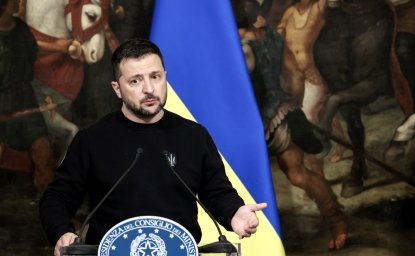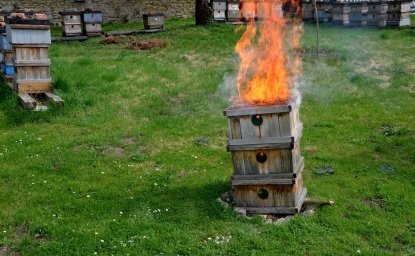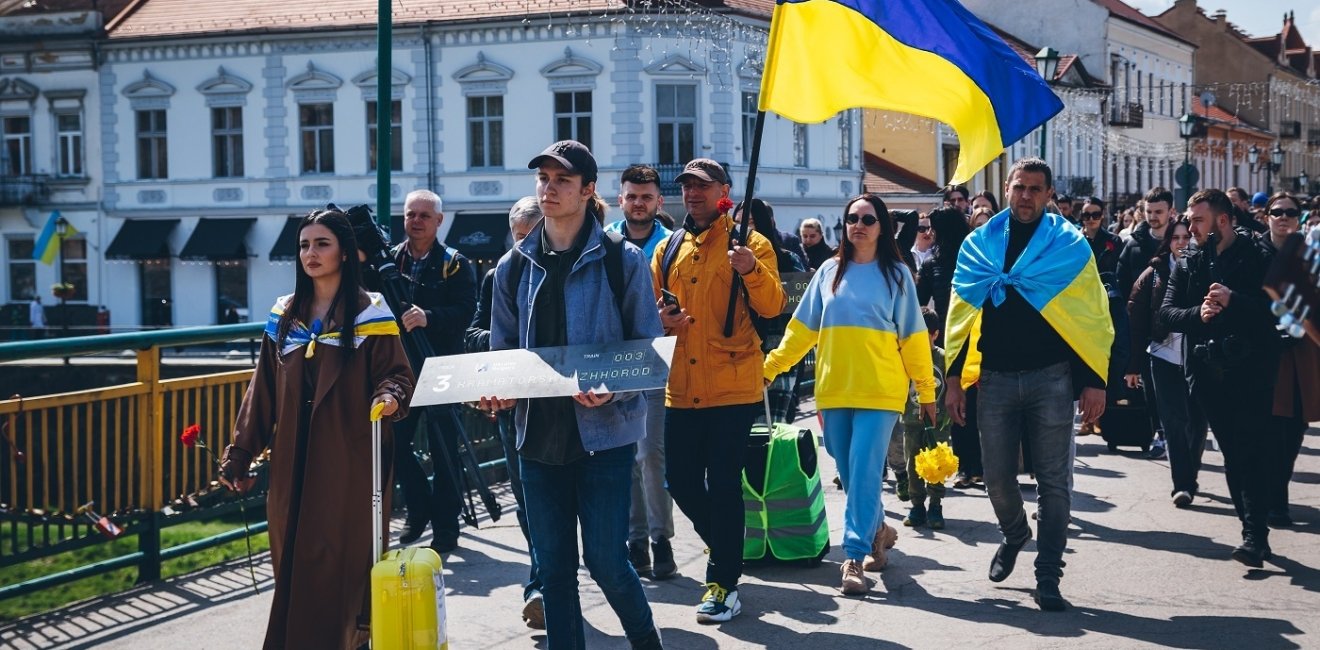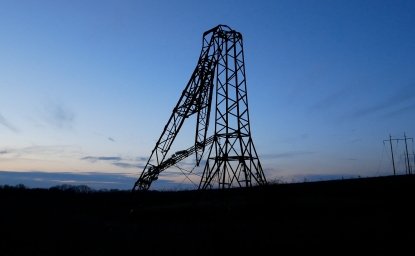
A blog of the Kennan Institute
This is the third in a series of three articles examining generational divides in wartime Ukraine. Read parts one and two.
Some studies indicate that states with youthful demographic profiles are more conflict-prone whereas older societies are more peaceful. But context is crucial. With Russia’s aggression against Ukraine, motivation to fight is a central aspect of the war: Ukraine’s younger generation is on the front line of its defensive fight against the Russian invasion, whereas in Russia, the younger generation is less supportive of the war. Prior to the war, survey research indicated that Ukrainians revealed a strong willingness to fight for their land against Russian invasion. Indeed, research on this sentiment was crucial in leading the intelligence and research (INR) division of the U.S. State Department to dissent from the broader prewar U.S. intelligence community’s assessment that Russia’s military would quickly defeat Ukraine’s defenders in any invasion scenario.
Since the invasion, telephone polls conducted by Rating Group Ukraine have portrayed Ukraine as a society united against invasion and optimistic about victory. Does this mean there are no generational divides among Ukrainians about the war? Our study of Ukrainians in three frontline cities, the results of which were presented at the Wilson Center, revealed complex and unpredictable patterns of generational support for war fighting and peace in Ukraine.
Surveying Frontline Ukrainians
We organized a face-to-face survey of more than 1,800 Ukrainians, half of whom were local residents and half of whom were internally displaced persons (IDPs), across three towns close to the regions where active fighting is taking place: Dnipro, Zaporizhzhia, and Poltava. The Kyiv International Institute of Sociology administered the survey in July. Local residents were surveyed using a random selection of electoral precincts, and IDPs by location sampling.
Generational Divides and Expectations
We decided to divide up the population generationally based on the history of Ukrainian independence: first, the Soviet generation (60 years and over), who were 30 years old when the Soviet Union collapsed; second, the transition generation (45–59 years old), who were educated and launched in the Soviet Union; third, the post-Soviet generation (30–44 years old), who were educated in independent Ukraine and have little memory of the USSR; and fourth, the young generation (18–29 years old), who have no direct memory or experience of the USSR.
We predicted that younger generations would demonstrate more support for war and fighting while older generations would tend to privilege the value of life and demonstrate more readiness to negotiate.
Willingness to Fight
We asked respondents whether they agreed or disagreed (on a five-point scale) with a generic patriotic statement: “Because my country is so important to me, I will fight and am willing to die for it.” Overall, the statement elicited strong agreement among respondents, with over 45 percent strongly agreeing. Only 5.7 percent of respondents strongly disagreed, while 14 percent neither agreed nor disagreed.
To our surprise, support for the sentiment was higher among older generations: while 54 percent of people age 60 and older strongly supported this statement, the agreement decreased to 36 percent for younger generations. People 45 and older also showed strong support for the liberation of all lands as a condition of a ceasefire (69 percent vs. 63 percent), while respondents younger than 45 were more supportive of a ceasefire under the right conditions (22 percent vs. 15 percent). When asked to assess the wartime dilemmas of saving the lives of Ukrainian soldiers and civilians versus continuing the war to free all Ukrainian territories, including Crimea and the Donbas, respondents under 30 were more inclined to save lives (40 percent vs. 25 percent for other groups).
War Optimism
Respondents under 30 are more optimistic about taking back the Donbas and Crimea than all other generations, while respondents age 60 years and older are more accepting of Crimea as a part of Russia (14 percent vs. 9 percent). In response to a set of tragic wartime trade-offs we posed to respondents, older respondents were also slightly more willing to concede the territory Russia has seized from Ukraine in exchange for a payment of $1 billion a year for ten years or in exchange for an apology from Russian leaders. A similar tendency was evident in the preference to receive economic restitution as a result of peace negotiation instead of preserving Ukraine’s territorial integrity. Older respondents were also optimistic, amidst overall skepticism, about the possibility of reaching a permanent peace settlement with Russia (24 percent vs. 15 percent for respondents under 45 and 18 percent for respondents 45–59 years old). While the older generation (age 60 years and older) tended to disagree with the statement that Russians are aiming to gain full control of Ukraine, our results revealed they also have a greater fear of the Russian government (47 percent vs. 33 percent of respondents under 60) and the Russian people (22 percent vs. 11 percent of respondents under 60).
As we expected, views on the war and possible negotiations significantly varied across age groups. However, our prediction that older generations would more strongly emphasize the value of life was not supported. Respondents between the ages of 30 and 44 were most protective of their families and of the lives of all Ukrainians, and more inclined to see peace as a desired outcome. They also were less willing to sacrifice their lives than people over 60 and more ready to consider a ceasefire under the right conditions.
Our prediction that older generations would demonstrate a greater readiness for negotiation was supported. While respondents age 30 and older were more optimistic about taking back all Ukrainian territories, the older generations showed stronger readiness for negotiation and were more accepting of ceding territory in exchange for restitutions and apologies. This position might be rooted in their stronger believe in the sustainability of negotiated solutions, a deeper disagreement that Russians are aiming to gain full control of Ukraine, or greater fear of the Russian leadership and Russian people.
This research was supported by US National Science Foundation award number 2226741.
The opinions expressed in this article are those solely of the author and do not reflect the views of the Kennan Institute.
Authors

Professor and Director, Program on History, Memory, and Conflict, Carter School for Peace and Conflict Resolution, George Mason University


Kennan Institute
The Kennan Institute is the premier US center for advanced research on Eurasia and the oldest and largest regional program at the Woodrow Wilson International Center for Scholars. The Kennan Institute is committed to improving American understanding of Russia, Ukraine, Central Asia, the South Caucasus, and the surrounding region though research and exchange. Read more

Explore More in Focus Ukraine
Browse Focus Ukraine
Building a Thriving Ukrainian Design Community Now

Ukraine Seeks to End the War. What's Wrong With the “Peace Scenarios”?


